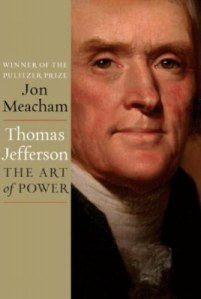
When President Barack Obama takes the stage for State of the Union Address Number Seven, he will be only the 16th president to reach the milestone. Despite cultivating an administration many associate with displeasure or unease, Obama is entering and increasingly elite group in American Presidential history. Though the power of Number Seven as an address or written message has ebbed and flowed, it has always remained a central statement of the Presidents’ views. Number Seven does not include some titanic names. Lincoln only made four SOTUs; the same as John Adams. President Kennedy only made three. What remains is a mixed bag of long tenured administrations; each with significant challenges still flaring in the twilight of their reign. When Obama begins Number Seven, he will join some interesting company. Let’s hop in the time machine for four examples of Number Seven in four different American centuries:
21st Century
George W. Bush (2001-2009) 7th SOTU January 23rd 2007
What was important to George?:
Though seemingly recent, Bush delivered the first Number Seven in the 21st Century eight years ago. It had been over a half decade since the traumatic events of 9/11 and the repercussions were clear in this address. First, he stayed stateside, preaching many conservative ideals such as balancing the budget, cutting spending, and and vetting out of the box thoughts on Social Security. However, since most of Bush’s presidency regaled in foreign policy, his Number Seven was mostly centralized around matters abroad ; creating a sort of haunting microcosm. The President again used Number Seven to cement his legacy and justify the actions taken seven years into his administration. He touched on many issues facing the Middle East, from sanctions on Iran to constitutional reforms in Arabic nations. He reaffirmed his commitment to the military and the power of American might overseas. Number Seven was a time to be unabashedly proud and the first 21st Century Seven was no exception.
Quotables:
“We’re not the first to come here with a government divided and uncertainty in the air. Like many before us, we can work through our differences, and we can achieve big things for the American people. Our citizens don’t much care which side of the aisle we sit on, as long as we’re willing to cross that aisle when there is work to be done.”
“We need to uphold the great tradition of the melting pot that welcomes and assimilates new arrivals. We need to resolve the status of the illegal immigrants who are already in our country without animosity and without amnesty.”
“American foreign policy is more than a matter of war and diplomacy. Our work in the world is also based on a timeless truth: To whom much is given, much is required. We hear the call to take on the challenges of hunger and poverty and disease, and that is precisely what America is doing.”
20th Century
Ronald Reagan (1981-1989) 7th SOTU January 27th 1987



